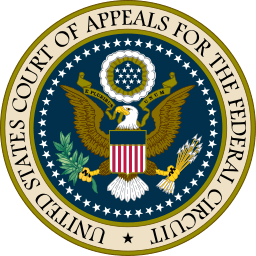CCK Wins Precedential Case That Will Help Veteran Sexual Assault Survivors

CCK Law: Our Vital Role in Veterans Law
CCK successfully argued before the United States Court of Appeals for the Federal Circuit in the case AZ v. Shinseki, obtaining a precedential decision in favor of veterans who experienced sexual assaults while in service. The case has broad implications for how VA will look at veterans’ claims for disabilities as a result of an in-service sexual assault.
Background of the Case
The case was consolidated to include two appellants, AZ and AY, both of whom experienced a sexual assault while in the military and developed post-traumatic stress disorder (PTSD) as a result of the assault. The veterans are named AZ and AY because the Court wanted to preserve their anonymity due to the nature of the cases.
Both AZ and AY were denied service connection for PTSD by the Board of Veterans’ Appeals due to insufficient evidence to confirm the alleged assaults. Both AZ and AY appealed to the Court of Appeals for Veterans Claims (CAVC), and CAVC affirmed the Boards’ decisions in both cases.
In order to obtain service connection for PTSD, a veteran must show three things:
- A current diagnosis of PTSD
- An in-service stressor
- A medical nexus linking their current PTSD diagnosis to their in-service stressor
In the case, the Board used the lack of evidence corroborating the veteran’s in service stressor (the sexual assault) as evidence that the stressor did not occur. In the case of AZ, the Board used the lack of reporting to give less probative weight to lay statements submitted by the Veteran’s family member that corroborate the assault.
The question at issue before the Court was whether “the Board may treat the absence of contemporaneous service records reporting the sexual assault as pertinent evidence that the sexual assault did not occur.” It is common for incidents of military sexual assault to go unreported, and the issue at hand was if the lack of a report can be used as evidence against a veteran’s claim of a disability as a result of a military sexual assault.
Zach Stolz Presents Oral Argument on Behalf of Veteran
CCK Partner Zach Stolz presented oral argument on behalf of the veteran AZ. In his argument, he contended that the Board and CAVC erred when they held that the lack of corroborating evidence of an in-service stressor is evidence that the incident did not occur.
Mr. Stolz stated that VA has acknowledged that in-service assaults are not typically reported to superior officers. The lack of reporting has been used by VA as pertinent evidence that the assault did not occur. While the Board did weigh this lack of evidence with other evidence in the case, including medical records and lay statements, Mr. Stolz argued that the lack of reporting should not constitute as evidence that the event did not occur in light of the other corroborating evidence.
Federal Circuit Rules in Favor of Veteran
The Federal Circuit ruled in favor of the Veteran, stating that “…where an alleged sexual assault, like most in-service sexual assaults, is not reported, the absence of service records documenting the alleged assault is not pertinent evidence that the assault did not occur.”
The judges also concluded that “…the VA may not treat a claimant’s failure to report an alleged sexual assault to military authorities as pertinent evidence that the sexual assault did not occur.” They arrived at this conclusion in part from considering the factors that deter sexual assault victims from reporting such an event in service, such as fear of reprisal. VA and the Department of Defense (DoD) admit that sexual assaults in the military frequently go unreported, which can lead to an issue of proving the occurrence of such event when a veteran files for VA disability benefits.
This ruling benefits survivors of military sexual assaults in that if they fail to report their assaults in service, VA cannot use that as evidence against their claim for service connection.
About the Author
Share this Post
